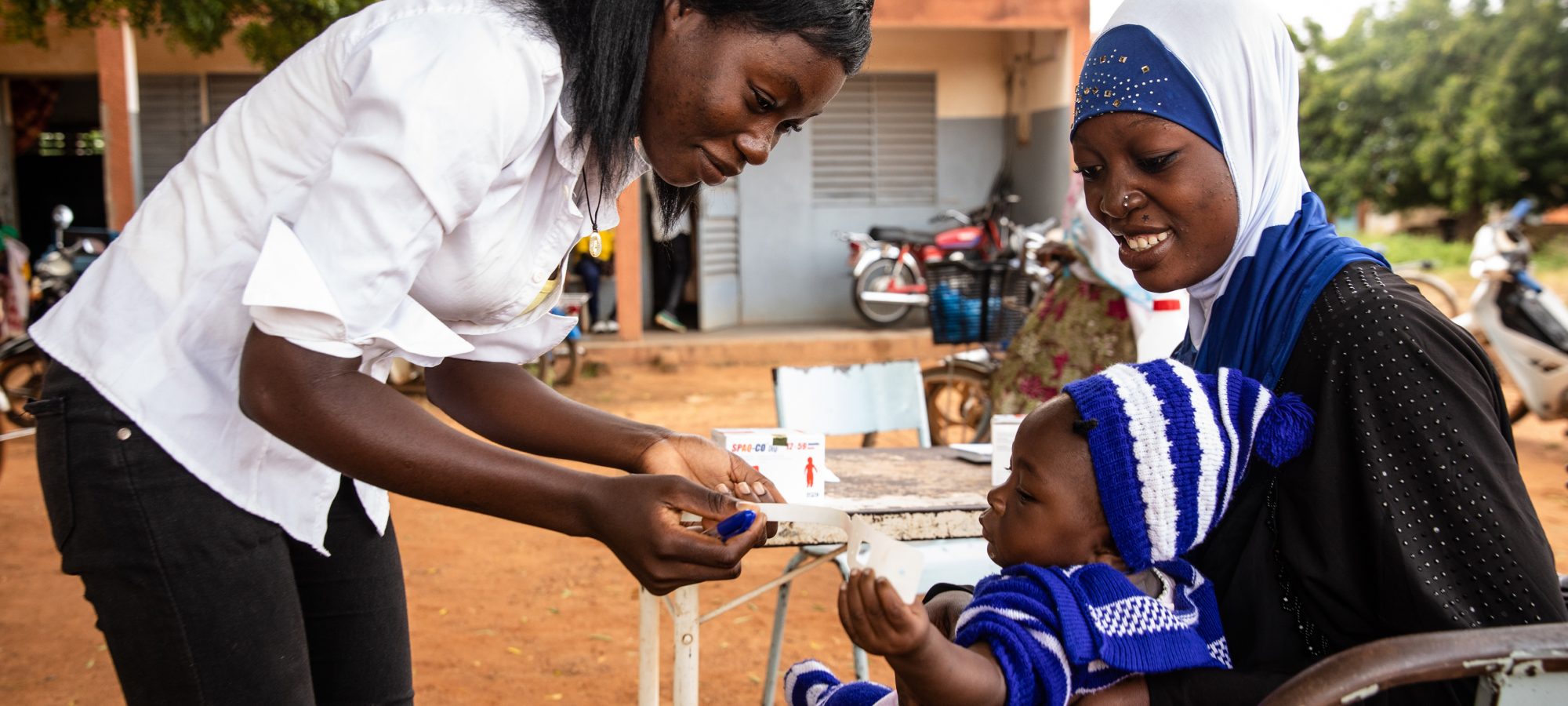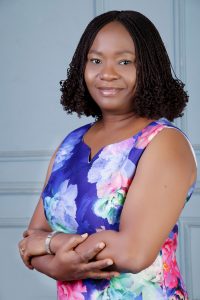11th February is International Day of Women and Girls in Science. our Senior Country Technical Coordinator for Nigeria, Olusola Oresanya talks about her experiences and how we can overcome some of the challenges women and girls face accessing careers in science.
I work with Malaria Consortium as the Senior Country Technical Coordinator in Nigeria. I provide technical oversight for Malaria Consortium’s Nigerian portfolio of projects and programmes . I’m responsible for ensuring that programmes are designed, implemented, monitored and evaluated according to best practices and aligned to quality standards. I also identify technical capacity needs or gaps and provide support to address these.
I obtained my first degree as a Medical Practitioner in medicine and surgery from one of the foremost universities in Nigeria, Obafemi Awolowo University, Ile-ife, followed by a post-graduate Diploma in Public Health from Hebrew University, Israel in 2008. Since graduating, I have continued to build my public health skills, including malaria control and management, monitoring and evaluation of health programmes, implementation research, research uptake and database management, from training institutes and schools including Harvard University, Arthur Ashe Institute for Urban Health, RIPA International, UK, and Mahidol University, Thailand, among others. I am currently studying for a PhD focused on Implementation Science.
I worked extremely hard to be in the position I am today and when I consider the many barriers preventing women and girls from accessing careers in science, I think that I am sadly more of the exception than the rule. Statistics show that female enrolment is less than 10 percent in mathematics, ICT, natural science and engineering globally. These barriers stem from all that contributes to the exclusion of girls from education, the list is long and includes poverty, gender biases and negative cultural beliefs. Historically, the science world has been dominated by men to the exclusion of women, perhaps due to inaccurate perceptions and stereotypes about what kinds of jobs women can or cannot do. These are perpetuated by cultural beliefs of gender stereotypes, where parents encourage their daughters to take the ‘softer’ career path of non-science related courses because they believe the ‘tougher’ ones should be for the boys. So, even when a young girl is interested in science, she may be confronted with these stereotypes and is discouraged to pursue her dreams.
As I have forged and established my career, I have found that beyond the initial barriers to pursuing science academically, there are additional challenges a woman has to grapple with to work in the field. A big one is overcoming the fear of intimidation that a male-dominated science arena can present. Society in Nigeria, and indeed much more widely than Nigeria, is patriarchal and there is a power imbalance between men and women. My experience has been that many men find it difficult to be subordinate to women even when, by all standards, the women deserve to be their superiors. This can make governance difficult for women in science who are in positions of authority; it takes a firm, bold, courageous and determined woman to succeed in such an environment.
There is also a societal expectation that a woman should be the keeper of the home and the nurturer and caretaker of children and this can also be a barrier. Because of these expectations, many women have either altogether abandoned their pursuit of a career in science or failed to attain the peak of their career because they wanted to conform to the societal norms of filling the traditional role of women. Who says a man cannot stay home with children while a woman studies? Should she have to sacrifice her career or dream because everyone expects her to do so? Women and girls make up half of the world’s population, there is a huge untapped potential waiting to be harnessed. Just think of the progress that could be made with women and girls’ involvement in science.
We need to encourage girls and women to pursue careers in science by countering stereotypes and creating enabling environments for girls to thrive. Parents and guardians should provide young girls with all the career options available without prejudice and allow them to make their choices. Staff in Guidance and Counselling units in schools, including teachers, should be re-oriented on how to steer promising girls who show dexterity and interest in science on the right career path. There should be deliberate efforts by governments, private organisations, non-governmental organisations and indeed everyone, to encourage girls to go into science. Bursaries and scholarships should be available for promising girls with no means of continuing their education and an increased quota should be allocated to women in filling job vacancies in science or admission to higher institutions to study science.
I want to share with girls and women aspiring to or starting out a career in science to dream big and pursue them! Challenges may show up on the way, but keep your eyes on your goal. You can be all that you set your heart to become, don’t allow society to define what you can or cannot do, it is not up to them, but up to you! It will require hard work and sacrifices, be ready to give it your best shot.

